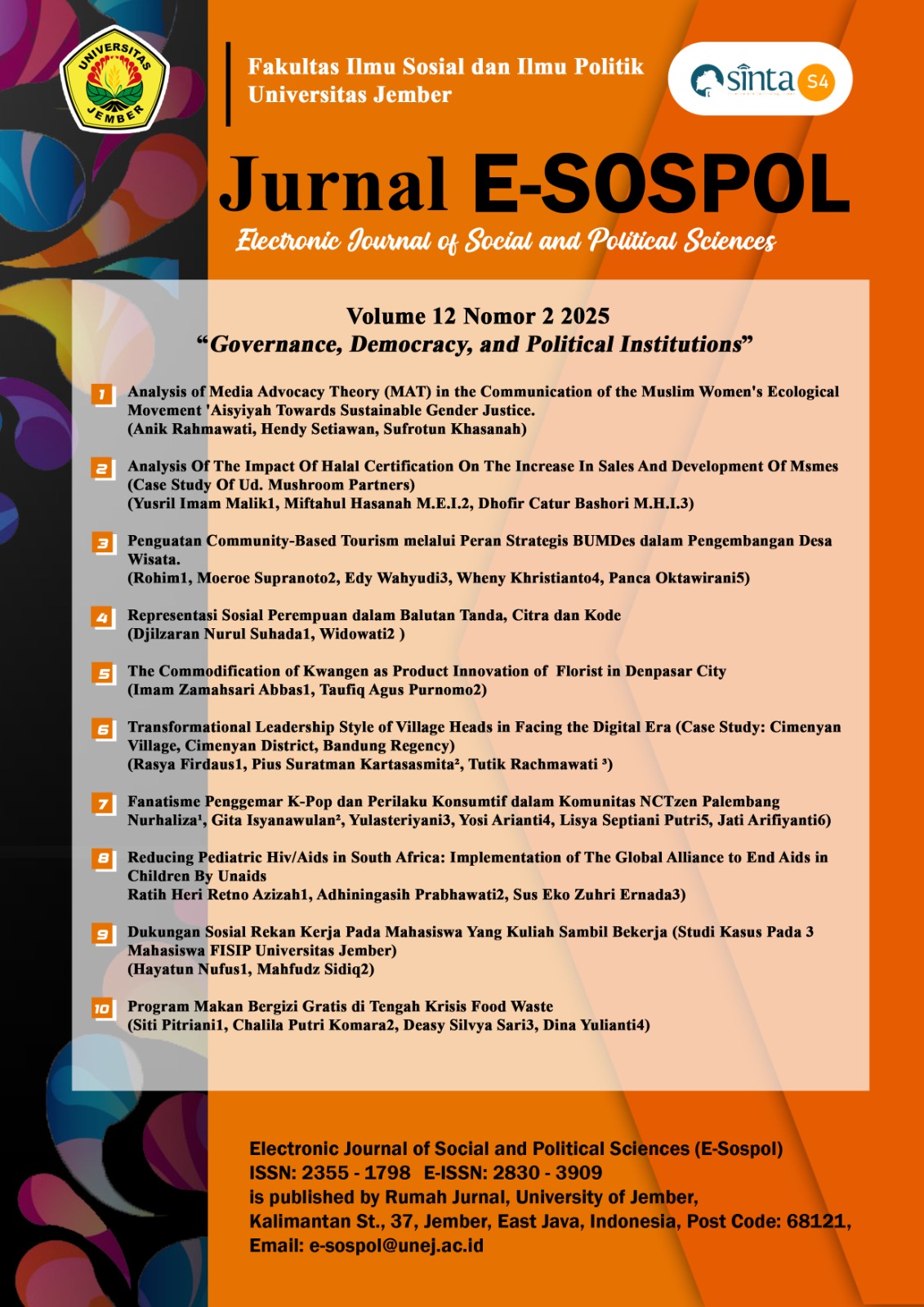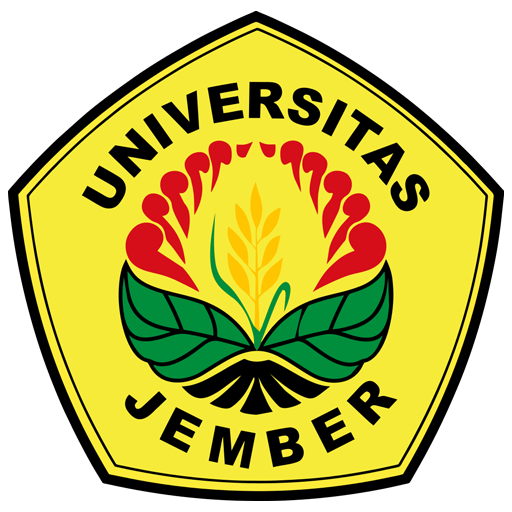Reducing Pediatric HIV/AIDS in South Africa: Implementation of the Global Alliance to End AIDS in Children by UNAIDS
DOI:
https://doi.org/10.19184/e-sospol.v12i2.53791Abstract
The research analyzed the implementation of the Global Alliance to End AIDS in Children program by UNAIDS in reducing the number of children living with HIV/AIDS in South Africa. The background of the research is based on the high prevalence of HIV/AIDS in children with gaps in access to antiretroviral therapy (ARV). The method used by the researcher is descriptive qualitative with a literature study approach and secondary data analysis from official reports, scientific journals, and international policies. The results show that through a four pillar approach of early detection, maternal and child treatment, prevention, and removal of social barriers, the program succeeded in reducing child mortality from HIV by 25% in two years. The Global Health Governance and Human Security approach is the main concept in evaluating the effectiveness of international cooperation. The findings emphasize the importance of global health governance and social inclusion in addressing HIV/AIDS in vulnerable groups.
Downloads
Downloads
Published
Issue
Section
License
Penulis yang mengusulkan naskahnya untuk dapat diproses penerbitannya pada e-SOSPOL dianggap telah menyetujui beberapa hal sebagai berikut:
1. Penulis tidak dapat menarik naskah yang telah usulkan untuk diproses hingga mendapat jawaban dari Ketua Dewan Penyunting atas status naskah artikel ilmiahnya (diterima atau ditolak untuk diterbitkan).
2. Penerbit tidak bertanggung jawab terhadap kasus plagiasi atas artikel yang terbit pada e-SOSPOL
3. Penerbit tidak bertanggung jawab atas data dan isi dari artikel yang diterbitkan pada e-SOSPOL, dan sepenuhnya merupakan tanggung jawab penulis.







